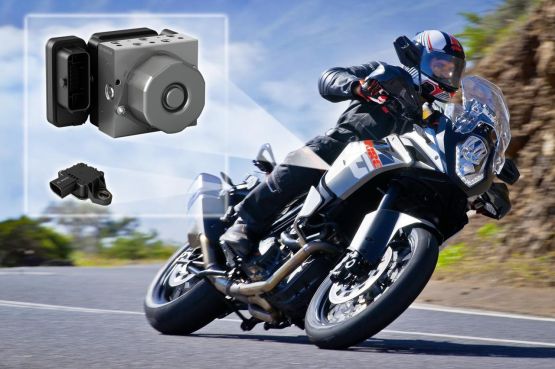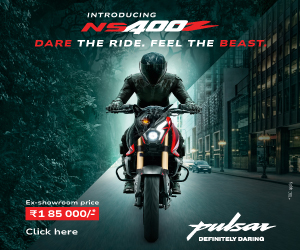 Bosch has just given the world the very first stability control system for motorcycles. Their system, called Motorcycle Stability Control (MSC), is he first brake control system and will ensure the best possible stability in all riding situations; providing assistance to the rider during both braking, accelerating, cornering and even simply riding in astraight line. The motorcycle’s handling, and of course, the riding pleasure, remain unchanged.
Bosch has just given the world the very first stability control system for motorcycles. Their system, called Motorcycle Stability Control (MSC), is he first brake control system and will ensure the best possible stability in all riding situations; providing assistance to the rider during both braking, accelerating, cornering and even simply riding in astraight line. The motorcycle’s handling, and of course, the riding pleasure, remain unchanged.
What will change, is the experience of optimum braking and accelerating even in bends, with improved safety within the limits of the motorcycle’s handling dynamics.
The system will become available at the end of 2013, as original equipment on the 2014 KTM 1190 Adventure and 1190 Adventure R models.
Gerhard Steiger, president of the Bosch Chassis Systems Control division, says, “Almost one in two fatal motorcycle accidents occurs in a bend. The Bosch motorcycle stability control can help further reduce the number of accidents.” In 2010, more than 5,000 motorcyclists died in road accidents in Europe alone. Studies show that ABS on its own can prevent around one-quarter of all motorcycle accidents that lead to injury or death. The new stability control will increase this number even further.
Fevzi Yildirim, head of the Bosch centre of competence for powered two-wheeler safety in Japan, added, “The technical basis of the MSC is the ABS enhanced system for motorcycles. The new functions are made possible by an extensive array of sensors and sophisticated software.
To understand the full effect of what the system offers motorcycle manufacturers and their demanding customers, we must discuss a whole range of safety functions:
- The lean and pitch angle-dependent ABS control improves riding stability in all riding situations as well as braking effectiveness.
- The traction control regulates the maximum engine torque so that even on variable or slippery road surfaces, the driving force is efficiently transferred to the road and the drive wheel does not lose its grip.
- When braking heavily in curves, the MSC reduces the motorcycle’s tendency to return to an upright position. This involuntary righting of the machine leads to a larger cornering radius, which often results in the motorcycle leaving its lane. In these situations, the eCBS electronic combined brake system creates the best possible distribution of brake force between the wheels, and thus stabilises the bike during cornering.
- The MSC also reduces the risk of ‘lowsiders’. These are accidents in which the motorcycle capsizes during cornering and the wheels slide out toward the outside of the bend. They occur when too much brake force is applied during cornering and the wheels are not able to transfer sufficient side force onto the road. MSC counteracts this by detecting the risk of a lowsider and limiting the maximum brake force. The eCBS function distributes this maximum available brake force between the wheels, ensuring the best possible brake performance under cornering conditions.
- The eCBS function ensures optimum distribution of brake force at all times – even when the biker mistakenly uses only one of the two brakes, or brakes with too much force.
- The wheelie-mitigation controls the engine torque, preventing the front wheel from lifting uncontrollably and at the same time ensuring maximum acceleration.
- The rear-wheel lift-up mitigation function keeps the rear wheel on the road by reducing the maximum brake force on the front wheel when riding on surfaces with high friction coefficients. Riding stability is maintained, taking pitch rate and longitudinal acceleration into account.
For motorcyclists, the Bosch MSC can be a lifesaver, but, just like ABS, it cannot defy the laws of physics. In particular, extreme misjudgement of the riding situation and major errors on the part of the biker can still lead to an accident. Nonetheless, the system supports bikers in borderline situations, helping them get more out of their motorcycles, while keeping them much safer at the same time.
Story: Jim Gorde


Leave a Reply